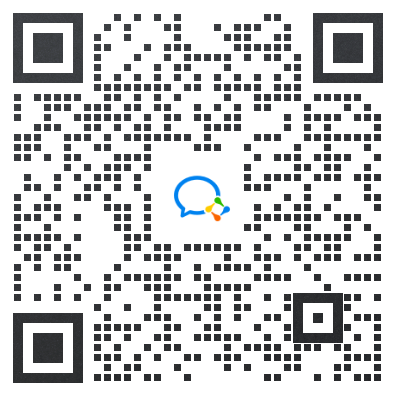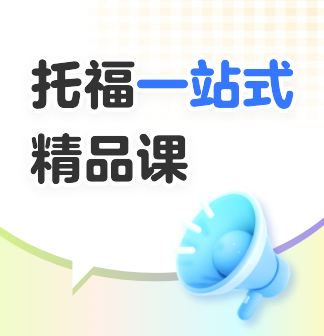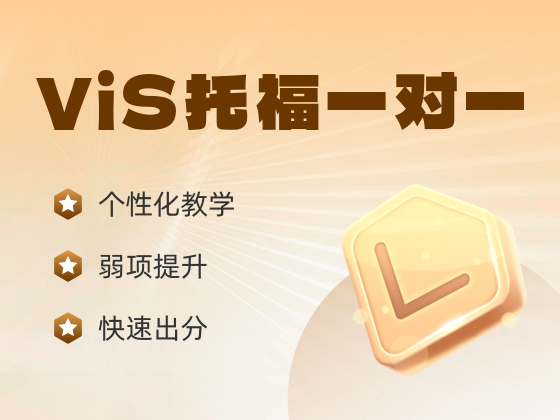- 首页
- > 得听力者得托福,如何避开误区快速提高听力水平?
得听力者得托福,如何避开误区快速提高听力水平?
2023-01-09 01:00:45
4 喜欢 | 3832 阅读
托福听力固然有套路, 但想要提升托福听力的分数, 还是要从基本功做起哦! 如果你的托福听力考了几次都比较惨淡, 今天就让小满酱为你支招吧!
得听力者得托福,如何避开误区快速提高听力水平?
我们知道,托福考试本质上是一个语言考试,所以语言基础很重要。同时,托福也是一个标准化考试,所以会有一套固定的内在出题逻辑,这就涉及到了考试技巧。今天,小满酱会从基础能力和考试技巧两个方面去分析如何提高听力考试分数。
01
练习听力的误区
在开始正题之前,先来纠正几个练习听力的误区。
1.听写的误区。
所有针对于提高基本能力的练习,最终的目标都是听懂。所以,所有的练习也都应该截止到听懂为止。举例来说,中国考生有一个历史悠久的练习方法叫做“听写”。具体做法是把一段听力当中的每个字都写一遍。有的机构声称:“听写是提高听力的唯一方法”。但是,当我们仔细研究这个方法的时候,一定要问自己两个问题。
第一,如果一句话听懂了,那么为什么要写?一句话可能第一遍没有听懂,但是反复听到第3遍听懂了。既然听懂,也就达到了练习基本功的最终目的。又有什么必要去写下来呢?
第二,如果一句话没听懂,那么怎么写?一句话没有听懂。如果是单词问题,那么无论听多少遍,都是写不出来的。如果是句子太长,那么我们需要练习的时候长句子的理解和记忆,如果一个字一个字去写,就失去长难句对瞬时记忆和理解能力的压力,也就失去了练习的意义。
所以,听写这个办法并不是提高听力的最快途径。
2.加速听误区。
很多人觉得自己反应速度慢,所以就加倍速去听。如果加倍速都听懂了,那么原速肯定没有问题。听不懂的因素有很多,很多情况下并不是因为速度问题,也可能是单词不认识,句子太复杂。如果在基础还很差的时候就加速听,会给自己增加更大的压力,效果也就可想而知。
3.泛听的误区。
有人觉得,我只要多听、常听、用心听,就一定能提高。这个想法是有道理的,因为native speaker肯定不做听写,肯定不做加速听,但是会每天泛听不同的材料。按照native speaker的方法去练习,肯定没错。但是别忘了,native speaker早上一睁开眼就在听,晚上做梦的时候听的也是英语,语言环境不知道比我们好多少倍。而对于一个考试,我们只需要听懂Lecture和Conversation就可以了,并不需要听懂Micheal和Nancy的八卦,不需要听懂奥巴马的演讲,也不需要听懂CNN的新闻。托福听力的套路非常明显,所以并需要其他的额外材料去做练习。
了解完误区,我们来说正题。
02
如何提高听力基本功?
以下说到的方法适用于所有年龄段,所有基础,所有考试的听力备考,因为提高基本功的方法都是相通的。
假设我们都有正常的智商,正常的生活经验,那么,但凡听不懂英语,不外乎以下五点原因——
单词
辨音
长难句
速度
背景知识
下面就来详细解说一下这5种能力的提升。
1.单词。
单词问题最好解决,只要背就好了。目前市面上任何一本针对托福的单词书都可以背。建议备考时间长的同学(4个月以上),可以直接上红宝书。备考时间短的同学,可以根据具体情况,去找一些针对听力学科的单词书,例如很多机构会有自己的分科目词表。至于背单词的方法,市面上有很多种,但基本原则是一样的:大量+重复。
所谓大量,是要求每天不能背得太少,不然战线拖太长,人会疲劳。不要相信“每天背20个,坚持一年就有6000词汇量”的鸡汤,极少有人能坚持背一年。所以,每天要加大量,我的建议是不低于150个。虽然被过的单词会忘,但是我们还有复习。
所谓重复,是要对抗遗忘规律。每天至少复习三遍当日的新词。有时间的话,还可以把前几天的单词也复习了。推荐给大家一种暴力背单词法:第一天背150,复习三遍。第二天背150,复习的时候把昨天的150也稍带上。第三天背150,复习的时候把之前的300也捎带上。如此类推,直到发现第一天的150已经背下来了,那么就可以不复习这150个了。这样可以在短时间内形成稳定的记忆,再配合听力文章的练习,极有可能形成永久记忆。
另外,对于听力单词来说,务必要结合音频去背,不然就变成了看着认识,听着不认识,在听力考场上,这样的单词就等于是不认识。
2.辨音。
辨音问题指的是一些难以分辨的语音现象,例如连读、失爆、弱读等等。通常的观点认为,辨音问题是我们的一大困难。就好像中国人把“女朋友”读成“女票”,作为native speaker的我们,很容易从“女票”联想到“女朋友”,但是随便抓过来一个老外,估计肯定听不懂。对连读现象多半出现在特定音节的搭配上。例如would you,但是/d/和/j/这两个音节可以出现在很多单词里,我们无法穷尽所有这样的搭配,这也就导致了----对于辨音问题,无法彻底解决。最好的办法就是遇到一个,解决一个。
解决辨音问题,才是用到“听写”的时候。听写的逻辑是,把听到的写下来,和正确的对比,检查出问题,然后进行改正。所以,辨音问题的解决办法是:听写(只听写辨音有问题的地方,不要把没问题的地方也写了),对比纠错,跟读模仿。
3.长难句。
句子长(复杂)到听多少遍都听不懂,才可以算作长难句。因为我们对于英文的瞬时记忆力比较差,所以提高瞬时记忆是关键。具体办法是强迫自己复述长难句。举例:Geocentric means Earth centered, /so the geocentric view holds that /the Sun, the planets, and the stars all revolve around the Earth,/ which is stationary.
最快速的理解句子的方法是将句子按照意群去理解,例子当中已经划分好了意群。意群的划分多半以谓语动词,从句为切割点。核心的理念是,不再试图把句子听成一个一个的单词,而是听成一组一组的单词,也就是一个一个的意群。这样的话,一个含有25个单词的句子,就只需要听懂4个意群。而每个意群都有自己的核心,也就是红色部分。这样一来就大大减少了需要处理的英文单词,自然提高的理解速度。在复述句子的时候,也要以意群为单位,不求复述清楚每一个单词,但一定要把主要逻辑复数正确。
4.速度。
速度问题是一个高级问题,如果在前三个基础能力都还很弱的时候,自然无法提高速度。对于一段文本,在解决了以上三个问题之后,可以做加倍速重听,或者也可以反复原速重听,听到比自己的亲妈还熟,就提高了理解速度。
5.背景知识。
对一个学科背景知识的了解,有助于听懂这个学科的文章。还是刚才的这句话:Geocentricmeans Earth centered, so the geocentric view holds that the Sun, the planets,and the stars all revolve around the Earth, which is stationary.
假如我们早就知道了Geocentric的意思,那么后面的内容几乎不用听,或者听到了零星的几个词,根据已有的知识,就可以拼凑出这句话的意思。这就是背景知识的作用。
但背景知识的提升需要积累。托福考试涵盖了大量的学科知识,虽然都不深奥,但对于平日积累较少的同学,确实有不小的难度。但我们也没有必要为了考托福而专门去系统地学习学科知识,只要把做过的每一篇文章里的知识都掌握好,适当地做一些延展(百度)即可。举个例子,听力有很多animal behavior的文章,只要我们知道了生物行为的两大目的:生存、繁殖。但凡听到了细节,就可以往生存或者繁殖的方面去思考,自然可以融会贯通。
03
如何用考试技巧应付听力套路?
作为一个运行多年的标准化考试,一定有一套内在的出题逻辑。这也是我们研究考试的重点方向——套路。
一篇5分钟的Lecture,往往可以有700字之多,而最后只考6个题目。这就说明,并不是每一句话都要考,如果每个题目对应1句话,那么文章绝大多数都是废话。但事实情况是,正是这些废话引出了重要的话,所以还不能不听。于是很多同学因为分不清重点,最后彻底沦陷在细节当中。下面我们从两个方面讲解Lecture的考试技巧。

第一,考点层面。
Lecture模拟了北美课堂的状态,老师讲课,学生听课。题目考察的必然是教授讲课的重点。作为一名有授课经验的、经过培训的老师,讲课的时候一定要有逻辑,一定会有重点,而这些重点是要以语言的形式外化出来的。这也就是我们通常所说的考点。考点一共有下面这些。
1.结构类
主旨
问答
并列
2.逻辑类
因果和转折
对比和比较
3.内容类
强调
举例
语音语调
过程
听到以上这些考点,基本可以确定出现了重要的内容,该认真听的认真听,想记笔记的可以记笔记。总是,题目考察的无外乎就是这些内容。
第二,逻辑层面。
Lecture的文章都有主旨,作为一篇精心设计过的文章,肯定不可能跑题。所以,我们可以紧紧抓住文章的主旨。一旦主旨确定,在听的时候会更加流畅,做题的时候也更加得心应手。另外,Lecture都会分为几个小的段落,每个段落也都有自己的主旨,抓住段落主旨也是听、和做题的好办法。下面就以TPO21 Lecture2为例,演示一下通过紧抓主旨的办法做题。
Ok,we've been talking about how throughout history, it was often difficult for people to give up ideas,which had long been taken for granted as scientific"truths," even if those ideas were false.In astronomy, for example,the distinction between the solar system and the universe wasn't clear until modern times.The ancient Greeks believed that what we call the solar system was in fact the entire universe...and that the universe was geocentric.
"Geocentric"means Earth centered, so the geocentric view holds that the Sun, the planets,and the stars all revolve around the Earth, which is stationary, Of course, we now know that the planets, including Earth, revolve around the Sun, and that the solar system is only a tiny part of the universe.
这两段主要提出了主旨——让人们放弃传统的观点很难。并以天文学为例,解释了Geocentric的概念。
这一段解释了为什么古希腊人认为地球是宇宙中心,虽然说了一大段,但紧紧地围绕主旨——让人们放弃传统的观点很难。
这一段废话连篇,总结成一句——让人们放弃传统的观点很难。
For example, Greek astronomers made excellent, very accurate observations of the movements of the planets.But the observations revealed a bit of a problem.The geocentric theory said that the planets would move around Earth in one direction.However, astronomers noticed that at times, several planets seemed to stop moving in one direction and start moving backward in their orbits around Earth.And they came up with the theory that these planets themselves moved in smaller circles, called epicycles, as they traveled around the Earth.Here's apicture of what they imagined.
You see how this epicycle theory could account for the seeming backward motion of a planet.Of course, today we know that this appearance of backward motion is caused by the fact that Earth as well as other planets all move in their own orbits around the Sun, and the relative movements of the planets with respect to each other can get quite complex.
这两段说了一个例子,但例子是支持观点的,所以,本段的核心和上段一样——让人们放弃传统的观点很难。
这段提出了新的理论Heliocentric,貌似与主旨无关,但是我们看看下一段。
最后这一段不但说Heliocentric的理论被质疑,而且还说出了具体的理由。总结成一句话——让人们放弃传统的观点很难。
所以说,一旦确定了全文主旨,在听文章的时候会非常流畅。凡是细节,就往主旨上靠。对于题目来说,有了主旨,也基本秒选。
Q2 Why did the ancient Greeks hold the geocentric view of the universe?
Click on 2 answers
A. The Sun appeared to them to revolve around Earth. (历史常识)
B. They had not developed methods of gathering accurate data on the movement of planets.
C. The irreligious and philosophical beliefs supported this view.(让人们放弃传统的观点很难)
D. Some of theplanets in the solar system had not been discovered yet.
Q3 Why does the professor point out that Greek astronomers tried to explain new astronomical discoveries within the geocentric concept?
A.To explain why early astronomers found new discoveries exciting
B.To explain why some claims made by ancient Greek astronomers conflicted withclaims made by earlier astronomers
C.To illustrate that the geocentric concept was open to many interpretations
D.To illustrate that the geocentric concept itself was not consideredquestionable(让人们放弃传统的观点很难)
其他的题目就不赘述了,感兴趣的同学可以自己回去实验哦~~~~~~附题目链接:https://toefl.kmf.com/detail/listen/d1gg5j.html?d=01(复制到浏览器打开)
下面我们再讲解conversation的策略。
Conversation总体来说套路不多,可以总结为:提出问题,讨论问题,解决问题。整篇对话的重点集中在学生提问和教授回答这两个方面。对于conversation,我的建议是,不要做笔记,尽量听懂。在听的时候时刻注意学生提出的问题和另一方给出的答案。不要纠结于考点,因为Lecture的考点在conversation里几乎都不适用。
最后,说一点关于笔记的事情。
很多同学被笔记坑了很久,不分青红皂白就记了很多,最后发现全都没用,而且文章也没听懂。限于篇幅,我们只说一个最基本的问题,希望可以对同学们有所启发。在做听力笔记的时候,记什么重要,还是怎么记重要?
答案是记什么重要。如果记了没用的东西,那么等于白记。不但白记,也白白耽误的听。如果记了重要的东西,虽然小明是画圈,小王是画方,小李是画三角,但本质上并无不同。由此可以推论,在不知道记什么的时候,完全可以选择不记。有人可能要辩驳说,如果不记,回头就忘了。其实做对题目,记住内容的核心原因是听懂了,而不是记了笔记。回想一下我们听懂的内容,如果出了题目,做题基本不看笔记。没听懂的地方考了题目,看了笔记也没啥用处。
所以,不要迷恋笔记。笔记做得好,确实有用;做的不好,还不如不做。
-END-
还处在迷茫期的同学们注意了,可以借助托福考满分app进行听力精听训练,同时也推荐大家添加规划师小姐姐的微信,领取最新听力直播课哦!




